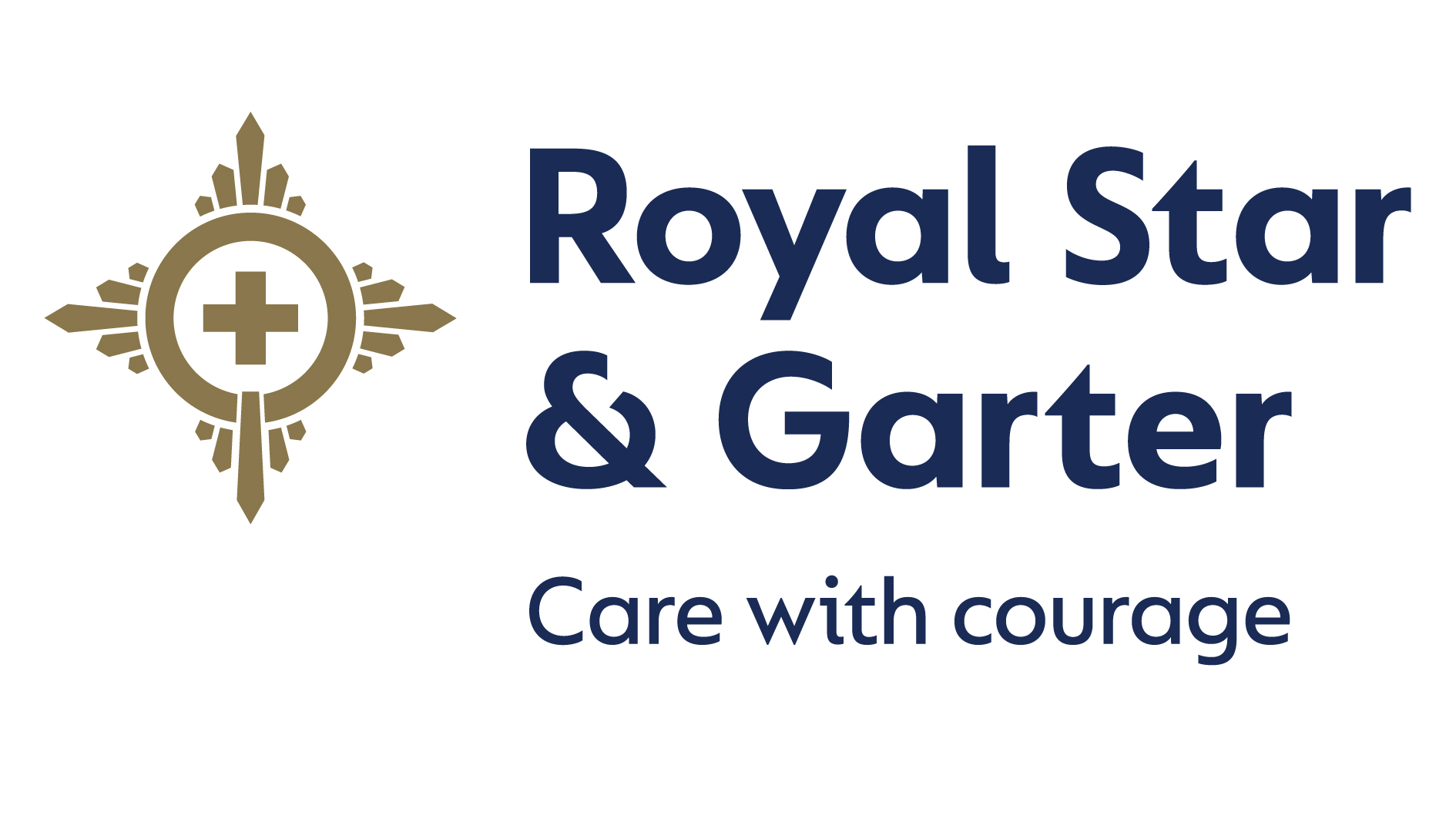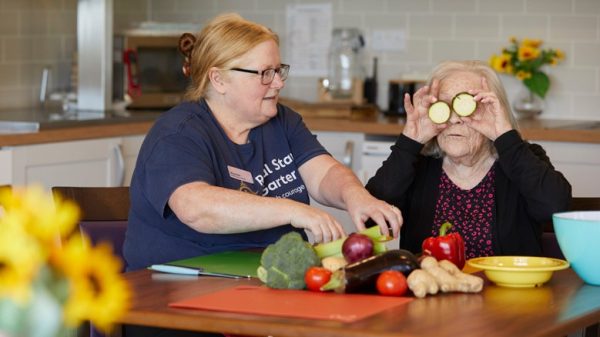During Dementia Action Week, 19-25 May, Royal Star & Garter is highlighting its innovative approach to improve the lives of those living with dementia.
The charity is always evolving its approach to better meet the needs of the veterans and partners in its care. The innovative dementia programme promotes living as a family, self-expression, and caring with empathy and understanding. Uniquely, it incorporates current developments in dementia care, new approaches to staff training and the use of technology, with a focus on creating stimulating, homely environments. It aims to improve the diagnosis, outcomes and daily life of residents and other service users living with dementia, and is committed to sharing its learnings with other care providers.
The charity provides loving, compassionate care to veterans and their partners living with disability or dementia from homes in Solihull, Surbiton and High Wycombe. Royal Star & Garter also has a Home in Worthing, having recently merged with the military charity Care for Veterans.
Royal Star & Garter is renowned for its excellent dementia care, which has received national recognition and praise in recent years. Its Homes in Solihull and High Wycombe are rated ‘Outstanding’ by the Care Quality Commission (CQC), while Surbiton’s Care is also rated ‘Outstanding’ by the healthcare watchdogs. In recent years, the charity has also won the Professional Excellence category at Alzheimer’s Society’s Dementia Hero Awards, and more recently the Solihull Home received a prestigious Chief Nurse for Adult Social Care Team Award for its dementia care.
In each of its Homes, expert care teams are not task-driven so that they can devote their time to the residents, providing them with love and support, and creating environments which enhance quality of life and promote independence.
In their Surbiton Home, staff on the dementia-care floor have worked with residents and their families to create innovative spaces, designed to meet and stimulate the needs of someone living with dementia. This includes an old-fashioned General Store for residents to purchase everyday items, from sweets to shampoo, evoking a sense of familiarity and security. Its latest addition is an enchanted garden, which acts as a sanctuary where residents can rest and relax. This indoor space features a seated area surrounded by flowers, calming sounds of running water and birdsong which bring the outside in, whatever the weather. A large interactive screen with soothing imagery allows residents to be whisked away anywhere in the world.
Wellbeing Teams within the Homes arrange daily dementia-friendly activities keeping residents engaged, with arts and crafts, music and outings. Staff also encourage residents to keep up with skills and hobbies. Sarah’s father Michael lives with dementia at Royal Star & Garter in High Wycombe. When staff organised an exhibition to show off his art work, she said:
“I love the fact that at the age of 95 he is still encouraged to paint and be creative and stay connected to his earlier life. It’s important for his own mental health, it’s vital for someone living with dementia, and it makes him happy.” And she added: “If he had still been at home, even with carers coming, we wouldn’t have been able to replicate the level of care he has at Royal Star & Garter. I know that he is happy at the Home, he tells me he’s in a good place, and that’s very reassuring for me.”
Shirley Hall is Royal Star & Garter’s Director of Care & Wellbeing. She said:
“We take immense pride in evolving, innovating and delivering outstanding dementia care. The dedicated teams in our Homes provide person-centred support that respects each resident’s individuality and dignity. Good dementia care is not just about meeting clinical needs – it’s about creating engaging, and nurturing environments where residents can live with meaning and joy. Our staff are recruited for their caring approach, emotional intelligence and compassion. When we take the time to connect and care in the right way, it makes a huge difference to their quality of life and brings peace of mind to families too.”
Royal Star & Garter staff are also trained to use a diagnostic tool to spot early signs of dementia, which is this year’s Dementia Action Week theme. Shirley continued:
“Early diagnosis allows for earlier treatment, better planning, and improved quality of life. Earlier diagnosis of dementia can mean signposting to treatment and services where appropriate, and help to slow the progression, support safety, and give individuals and families time to make informed decisions.”
The charity also provides Day Care services from its Homes for people living with the early stages of dementia.
Royal Star & Garter is welcoming new residents into its Homes. For more information on this, its new services or to work for the charity, go to www.starandgarter.org


















